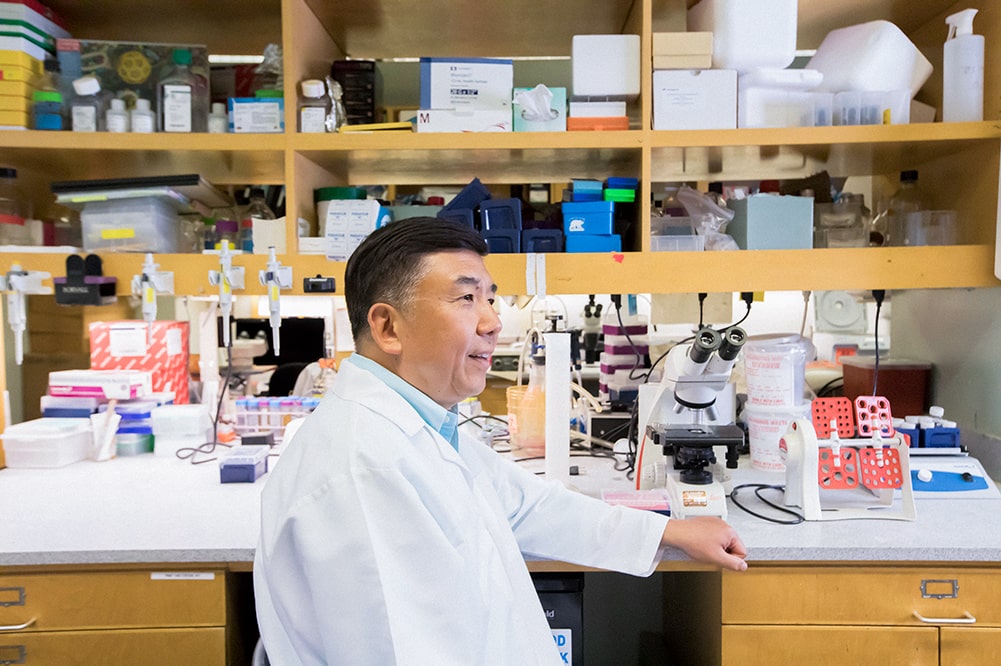Ostrow Study Illustrates How Growth Factor Defect Causes Tongue Malformation

Posted
09 Sep 13
New findings about how cell signaling directs tongue development may have big clinical applications for healing tongue defects, according to an Herman Ostrow School of Dentistry of USC study in the Journal of Biological Chemistry.
Professor Yang Chai, the study’s principal investigator and director of the Center for Craniofacial Molecular Biology at the Ostrow School of Dentistry, says the tongue is a very unique, highly mobile muscular organ that many view as a “fifth limb.” He adds that when the tongue develops improperly or is damaged by injury or disease, it cannot regenerate on its own.
“The current standard of care is to repair the tongue surgically using a skin flap, but it doesn’t have the muscle components to move the tongue and lacks the ability to taste food,” Chai says. “We want to understand how the tongue is formed and how we can use that knowledge to regenerate the tongue.”
A specialized group of cells called cranial neural crest cells (CNC) are responsible for the growth of many aspects of the mouth and face as an embryo develops. The CNC not only form a scaffold of connective tissue for new tongue muscle cells but also secrete necessary growth factors, including transforming growth factor beta (TGFb).
Using mouse tissue as an experimental model, the study shows that a mutation in TGFb causes the growth factor to trigger an abnormal cascade of cellular signals, resulting in defects such as microglossia, or small tongue, Chai says.
Promisingly, malformed tongue muscle cells were rescued and restored when proper growth factors were reintroduced to the cells. With such striking success in vitro, the next step is to examine the process in a live animal model, he says.
“If you want to repair a tongue defect, you could possibly use some of these growth factors to guide the muscle and improve surgical success,” Chai says.
The study has been honored as a “Paper of the Week,” which means that it is among the top two percent of the more than 6000 papers published by the Journal of Biological Chemistry each year. Chai says he and his team are honored by the distinction and credits focusing on translational science for their continued research success.
“Not only do we have a story to tell about the signaling, but this study also clearly has some clinical applications,” Chai says.
“Non-canonical transforming growth factor beta (TGFb) signaling in cranial neural crest cells causes tongue muscle developmental defects” first appeared online in the Journal of Biological Chemistry on August 15, 2013.